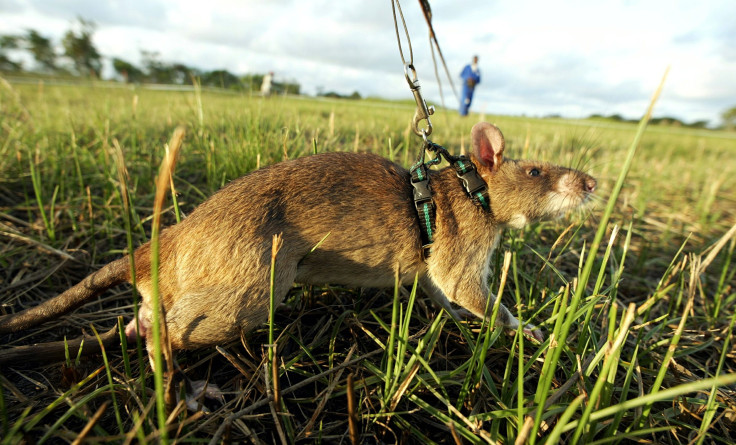Dutch Police To Use Sniffer Rats To Help Investigate Crime

Next year, five rats that are undergoing police training in the Dutch city of Rotterdam to identify various scents -- including drugs and explosives -- will go into active service, making Netherlands the first country to use trained rats in civilian police investigations, BBC reported.
These rats are named after five fictional detectives -- Hercule Poirot from Agatha Christie's novels; television detectives Magnum and Derrick who are popular in the Netherlands; and Jansen and Janssen, the Dutch names for the two detectives featured in Tintin comics.
Monique Hamerslag, who trained the rats, told BBC that rodents are easier to train than dogs, as their sense of smell is stronger than that of canines. Also, the time taken to train rats is far less -- about 10 days -- while training dogs takes months, sometimes even years.
"Rats cannot replace police dogs," primarily because they are not sent out to the crime scene and do not sniff suspects, Hamerslag was quoted as saying by Spiegel Online International. But, using rats to identify traces of gunshot residue or drugs on a suspect would save a lot of time, energy and money, as costly laboratory equipment would not have to be used, she said.
Citing an example of how rats would help in the investigation, Hamerslag said that once several suspects are arrested following a shooting, a conventional test for gunshot residue from the suspects takes at least take two hours to complete, while "rats can do the same thing in two seconds."
According to reports, Dutch police zeroed in on the idea of using rats for police investigations following tremendous budget constraints. Forensic Magazine noted that the idea of using rats to aid investigations came about two years back when Hamerslag wrote a thesis on how rats were being used in Africa to search for land mines.
"Theoretically you can train them on any substance," Hamerslag told Spiegel Online International. "Even toothpaste."
© Copyright IBTimes 2024. All rights reserved.





















